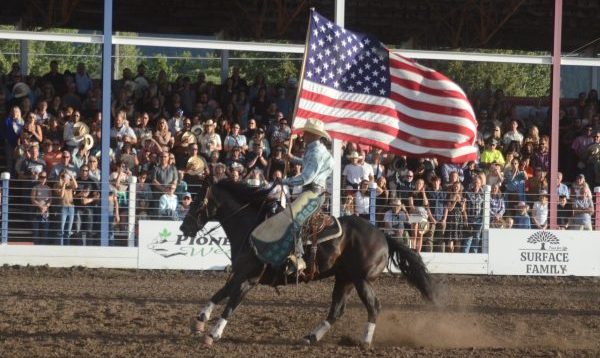Main Street: Invading Iraq
Published 5:00 pm Wednesday, August 21, 2002

- Rich Wandschneider
I know. You pick up the Oregonian or the Observer and there is a story about our preparations for war in Iraq – or an editorial or pundit’s column arguing against it. You turn on the radio, and network news at the top of the hour carries some tidbit about this next American foreign venture.
A couple of weeks ago, Rick Swart weighed in with a short editorial in this paper in favor of a preemptive strike. And now I’m going to shoot my face off – predictably in some of your minds – against such an action.
Trending
Why all the fuss? And why should we be talking about it in the pages of a small town weekly newspaper?
My belief is that the “fuss” is about disagreements at the very top levels of leadership in the country. That disagreement owes to many things: failure of Bush senior to “finish the job” in the Gulf War; fear inspired by the September 11 attack; the nagging unfinished condition of the “War against Terrorism” at home (when and how will this anthrax situation be resolved?), and in Afghanistan (how many troops will be there how long? and where is Osama bin Laden?); disagreements about just what Saddam Hussein has in the way of weapons of mass destruction; disagreements about the role and the meaning of international law regarding invasion of a sovereign nation; and electoral politics (yes, there is still great bitterness among some politicians about the way the last presidential election was decided in Florida, and there is calculation about what a war effort will do in the upcoming election).
Maybe more important than all of these things is a deep and increasingly public division at the highest levels of the military and the highest levels in the White House about just what would be involved in going to war in Iraq and how it would play out. The hawks are led by Rumsfield at Defense, Cheney in the White House, and possibly, although I’ve not seen any names attached to the notion, by Air Force generals. Their position is that we can go into Iraq with overwhelming force (most of it delivered from miles aloft), and that anti-Saddam forces within the country will rise up and a new pro-Western and pro-democratic Iraq will emerge.
On the other side are Colin Powell and the State Department, who are concerned with the lack of support by European allies; impacts on Israel and the Palestinian conflict; negative effects in the war on terrorism; and possible long term negative repercussions throughout the Arab world. And some generals are opposed. That’s Army and Marine generals who project a long and costly occupation involving over 200,000 troops. A growing number of legislators, including normally hawkish Republican legislators, are also expressing doubts, and retired General Brent Scocroft, national security advisor to the senior Bush, wrote a piece in the New York Times last week titled “Don’t Attack Saddam.” Many commentators assume that the senior Bush knew about Scocroft’s piece ahead of time, and there is speculation that he approved it. In other words, the divisions are real, and they are important.
But why enter the debate from this remote perch in the Wallowa County Chieftain? The simple answer is that it is what an open society is all about. A longer answer has former Chieftain editor and publisher Gwen Coffin looking over my shoulder. In 1943, Coffin wrote that “When historians sit down to write the history of the present war we venture a guess that the government’s treatment of the Japanese in this country will come in for some pretty severe criticism.” Readers who were here and were old enough to read newspapers in the early ’70s will also remember that Gwen opposed the war in Vietnam early and consistently. Coffin did not back down from unpopular positions, and he often proved prophetic. One must believe, in an open society such as ours, that the thousands of small newspapers and small voices across the country ultimately have an impact on public policy.
Although there is a growing and very important effort to honor the American Veterans who served in Vietnam – and I am 100 percent in favor of this effort – the historical debate still weighs heavily on the side of those who thought that war a colossal American mistake. It is my belief that
Trending
American policy was finally turned around when growing numbers of newspapers printed the real news from Vietnam, and when middle class mothers marched in the streets.
There is a war itch in the country again. I can add little to the arguments made by those in opposition to a unilateral invasion of Iraq. But I can speak out, like Gwen Coffin and those marching mothers ahead of me. And I can remind you that this war itch is being scratched most vehemently by men who have never been to war: Cheney, Rumsfield, Wolowitz, and maybe Bush junior, who spent some time during the Vietnam conflict being AWOL from Texas National Guard meetings. Scocroft, Powell, Bush senior and others who have seen the face of war first hand are taking a more measured view. They know that scratching can lead to serious bleeding.









